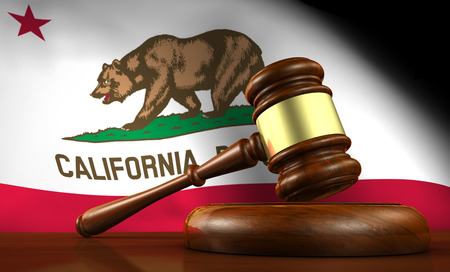Exclusive Remedy Bars Worker's Action Against Grocery Store
Wednesday, April 20, 2022 | 0
A California appellate court upheld the dismissal of a worker’s tort claim against a grocery store she had previously identified as her employer in a workers’ compensation claim.
 Tashay Lenzy worked as a barista at a Ralphs grocery store in Los Angeles. In September 2016, she fell and injured her knee when she was struck by the door of a service elevator in the store.
Tashay Lenzy worked as a barista at a Ralphs grocery store in Los Angeles. In September 2016, she fell and injured her knee when she was struck by the door of a service elevator in the store.
Lenzy filed a workers' compensation claim in which she listed Ralphs as her employer and indicated the company was insured.
She later settled her workers' compensation claim for a lump sum of $50,000.
The compromise and release identified Kroger as Lenzy’s employer. The order approving the compromise and release identified the defendant as "The Kroger Company, dba Ralphs Grocery Co."
While Lenzy’s workers' compensation claim was still pending, she filed a negligence action against Ralphs and the Thyssenkrupp Elevator Corp.
Ralphs moved for summary judgment on the ground that the claim against it was barred by the workers' compensation exclusive remedy rule.
In support of its motion, Ralphs submitted several unauthenticated documents ostensibly related to Lenzy’s employment, including a declaration by Kroger's corporate counsel stating Kroger has no employees at the store where Lenzy was injured, and interrogatory responses in which Lenzy identified Ralphs as her employer.
Lenzy objected to unauthenticated documents as well as certain statements in counsel’s declaration as lacking foundation.
The trial court denied Lenzy’s evidentiary objections and granted Ralphs' motion for summary judgment.
The Court of Appeal for the 2nd District of California on Monday said in an unpublished decision that generally, a declaration filed in support of a motion for summary judgment must "be made by a person on personal knowledge, shall set forth admissible evidence, and shall show affirmatively that the affiant is competent to testify to the matters stated in the affidavits or declarations."
While counsel’s declaration provided no basis to infer that he had personal knowledge of Ralphs' interest in the store at which Lenzy worked, the court said, the declaration sufficiently established that counsel had personal knowledge of Kroger's relationship to Ralphs, Kroger's lack of involvement in the day-to-day operations of the store where Lenzy worked, and the fact that Kroger did not hire Lenzy. “We, therefore, do consider these statements in assessing whether Ralphs employed plaintiff,” the court said.
The court acknowledged that an employee may have more than one employer for purposes of the Workers' Compensation Act, each of which is responsible for securing workers' compensation and each of which is protected by the exclusive remedy rule.
In this case, Lenzy repeatedly acknowledged an employment relationship with Ralphs, first in her application for adjudication of her workers' compensation claim and again in response to Thyssenkrupp's interrogatories, the court noted.
The court said counsel’s admissible statements about Kroger's lack of a role in the operations of the store where Lenzy worked also supported an inference that Ralphs had the right of control with respect to Lenzy’s work.
The evidence regarding the workers’ compensation claim and settlement also indicated that Ralphs complied with its legal obligation to secure the payment of compensation for Lenzy, and she presented no evidence to undermine this showing. Thus, the court said, summary judgment for Ralphs was appropriate.
To read the court’s decision in Lenzy v. Ralphs Grocery Co., No. B308069, click here.







Comments